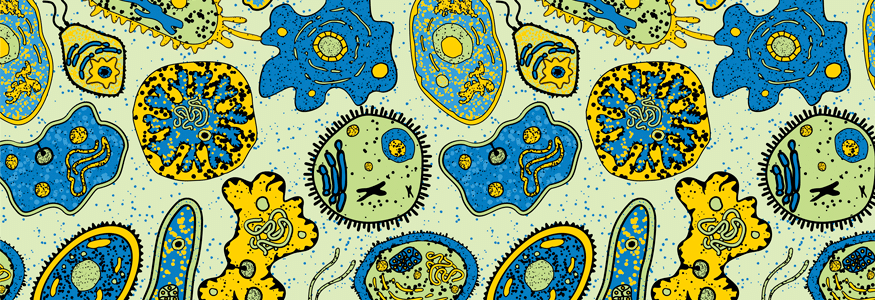
Can Gut Bacteria Protect Against Nut and Other Allergies?
Researchers are learning that the rich colonies of bacteria present in the digestive tract influence the body’s systems far more than previously thought. A review of more than a hundred studies reveals the role gut bacteria plays in our susceptibility to food allergies.1
Researchers have observed that gut bacteria have an effect on the mucosal immune system in the gut, which detects pathogens or, as in the case of allergies, mistakenly identifies certain benign food material (food antigens) as harmful. Researchers are finding that specific strains of bacteria in the gut stimulate signals to the immune system that foods, such as peanuts, milk, and others, are not harmful. If an individual has low levels of these bacteria in their digestive tract, the immune system might miss the ‘not harmful’ signal and trigger an inappropriate response.
Due to dietary changes and other environmental factors, the microbiomes of individuals in Western countries are generally less diverse and contain fewer of these anti-allergy bacteria than they did previously, leaving us more susceptible to developing allergies. While researchers do not yet fully understand the exact mechanism behind gut bacteria’s influence on immune response, many of them speculate that the short chain fatty acids produced by gut bacteria’s activity in the intestine during digestion are behind the immune response signaling.
Since severe food allergies usually start to develop in infancy and progress in severity with age, the review authors suggest that probiotic treatments for newborns and pregnant or breastfeeding women could be beneficial. Recent studies on infants with cow’s milk protein allergy have already shown that treatment with a combination of a hydrolysed casein formula combined with a probiotic supplement containing lactobacillus rhamnosus decreases the chance of the allergy continuing into later childhood or adulthood. Babies do not yet have a fully developed microbiome, so researchers also theorize it might be easier and better to promote a healthy microbiome rich in allergy-desensitizing bacteria as early in life as possible.
Want to learn more about allergies?
We have several related articles that may be helpful:
- 10 Myths about Food Allergies
- Food Allergy vs. Intolerance
- Gut Bacteria Protect Against Nut and Other Allergies
- Intestinal Gas from Complex Carbohydrates or Lactose Intolerance
- Is Your Gut Friend or Foe?
- Shedding Light on Peanut Allergies
- Yeast and Mould Allergy
Want to learn more about gut bacteria?
We have several related articles that may be helpful:
- Campylobacter
- Clostridium difficile Infection and IBD
- H. pylori and Halitosis (Bad Breath)
- H. pylori: More than Gastric Ulcers
- All About Antibiotics
- Are You Washing Your Hands Correctly?
- Artificial Sweeteners Could Harm Gut Microbiota
- Babies and Bacteria
- Bacteria, Viruses, and Antimicrobial Resistance
- Behaviour Linked to Gut Bacteria
- Breaking the Link – IBS and Bacterial Overgrowth
- Clostridioides difficile Infection
- Dangerous Food Bacteria Are Here To Stay
- Foodborne Illness
- Gastroenteritis (Stomach Flu)
- Germs in the Loo
- Gut Bacteria Protect Against Nut and Other Allergies
- Gut Bacteria’s Far-Reaching Effects
- Help for Overweight Children
- IBS or Small Intestinal Bacterial Overgrowth?
- Intestinal Microbes & Prebiotics at a Glance
- Link Between Changing Gut Flora and Obesity
- Milk Fat: What the MFGM?
- Necrotizing Enterocolitis
- Probiotics, Prebiotics, and the Microbiome
- Seniors and Bacteria
- The Scoop on Poop
- Validated and Experimental Treatments for C. difficile
- Yeast and Mould Allergy
- Your Gut Microbiota – Balanced or Not?















